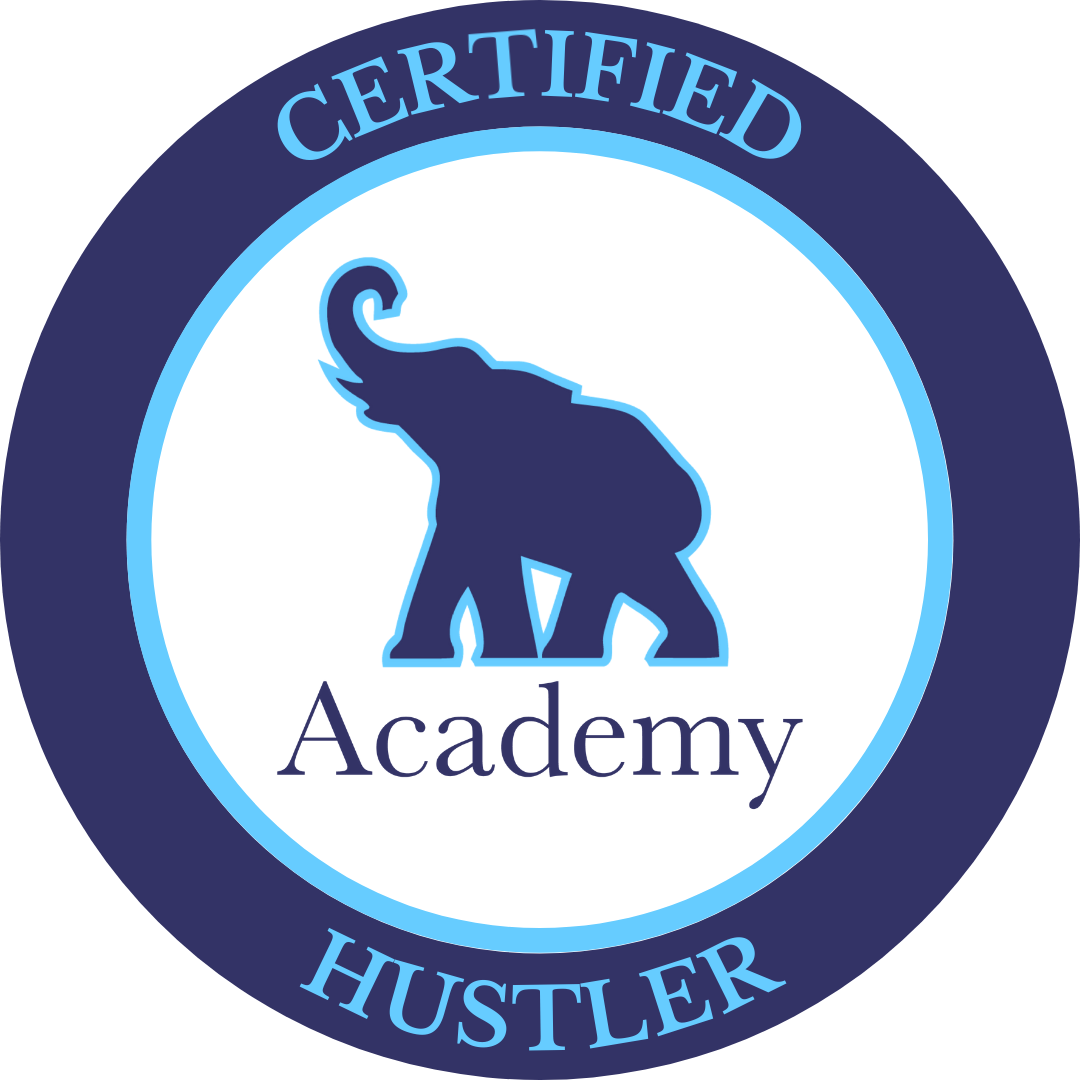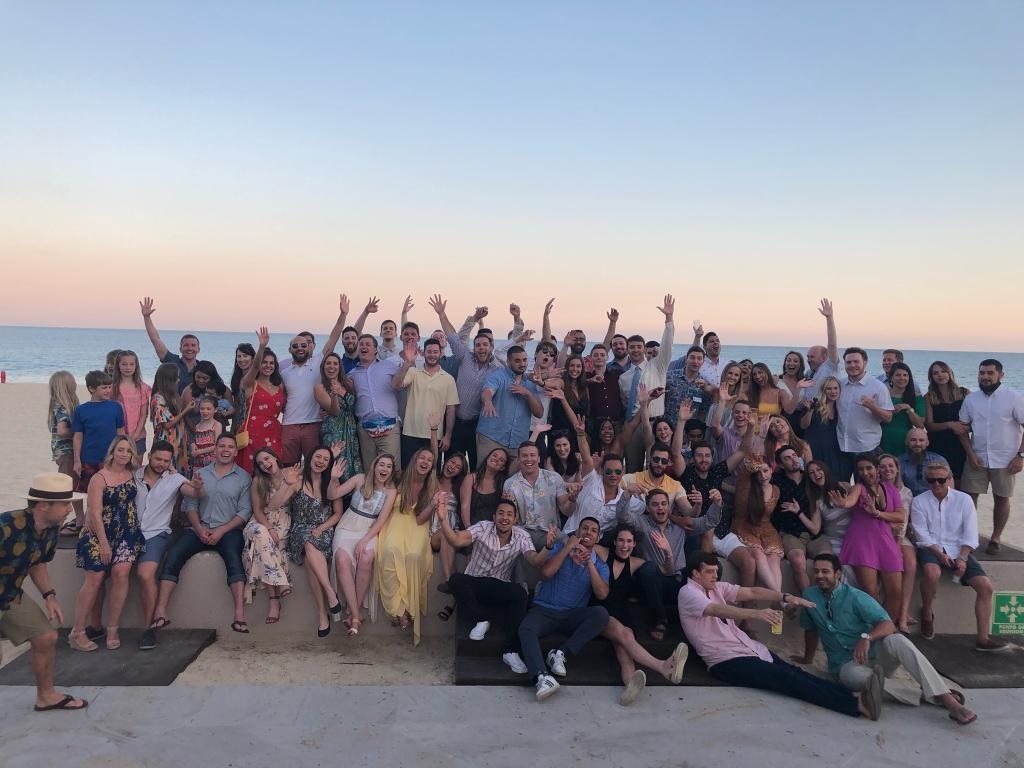Tech Sales FAQ
Technology is a key part of modern business operations and it is evolving at an incredibly fast pace. Need proof? The top five companies in the S&P 500 are all tech firms and together they are worth over $2.6 trillion. While the explosion of technology in business is well-publicized, it’s less common for the primary users of technology – upcoming and recent college graduates – to consider a career in high-tech sales, possibly because of a couple unanswered tech sales questions.
See the most frequently asked tech sales questions, answered by top tech sales SDRs, recruiters, and executives. Click on one of the questions below to skip to that answer:
What is tech sales?
From blossoming tech start-ups to the heaviest hitters in the corporate world, the rise of the high-tech industry built a growing demand for strong, high-tech sales professionals to link these new technology products and services with potential corporate buyers. Business-to-Business (B2B) tech sales professionals sell both products and services. Tech sales may sound complex, but most corporate prospects (potential customers) don’t need (or want) to know every technical aspect of a new solution, they just want to know why they should care about it.
Is selling technology a simple or complex sale (transactional or consultative)?
When you first hear the word “sales” you’ll often think of simple, transactional sales. That simply means selling products nearly everyone understands and could have a need for, like copiers, cars, magazines, and more. Transactional sales cycles are typically quick and the cost for these items may be relatively small – along with the commission the sales representative makes.
Technology sales fall under the complex or consultative sales category due to the sales cycle involving more steps and often more stakeholders on both the product and the customer side. Complex sales are sometimes riskier for the buyer due to the higher price tag and longer contracts, but the benefits of the product being sold typically outweigh the costs. Complex sales give tech sales professionals the opportunity to make much larger sums of money if they can create enough of a need within the customer to buy their product, which takes good training, subject matter expertise, and a passion for solving customer pain points.
Is tech sales a good career?
It depends on what your goals are. If your goal is to work a job where your compensation depends on your work ethic and competitive attitude, then sales is a great career. The truth is, good sales professionals are always in high demand. When you understand just how fast the technology industry is accelerating, it’s easy to see why great tech sales professionals have companies competing for their expertise. Tech sales professionals are well compensated, with the average Account Executive (the sales role responsible for closing deals) having earning opportunities of $160k+.
What are the challenges of tech sales?
Tech sales is a dynamic field where the industry, the products, and the companies continue to evolve quickly. Keeping up with the trends in the industry of potential customers can be difficult when things change as quickly as they do in technology, but incredibly rewarding if tech sales professionals can crack the code on what their prospects are looking for. Tech sales can be hard to break into with no experience due to the complex nature of the product and sales cycle. Many entry-level tech sales representatives are left without good training on effective prospect communication, uncovering needs, and delivering value. This lack of good training creates a barrier to enter the tech sales profession that we at memoryBlue are looking to remove.
What does memoryBlue do?
 memoryBlue is a sales development consulting firm that specializes in helping a wide range of high-tech clients accelerate new business growth. For nearly two decades, we have helped high-tech firms tackle their sales development challenges and carve out bigger market share in their space. Building and executing a carefully designed, multi-touch cadence that generates a flow of sales qualified leads is the hallmark of our business.
memoryBlue is a sales development consulting firm that specializes in helping a wide range of high-tech clients accelerate new business growth. For nearly two decades, we have helped high-tech firms tackle their sales development challenges and carve out bigger market share in their space. Building and executing a carefully designed, multi-touch cadence that generates a flow of sales qualified leads is the hallmark of our business.
We invest in elevating our people by pairing well-trained sales development professionals and leaders with high-tech clients in search of a better way to consistently generate a pipeline of sales qualified leads.
Do I need a technology degree to enter tech sales?
While the product or service that a tech sales professional sells is very technical, they typically need a strong surface-level knowledge of the product or service. Most importantly, they need to become an expert in their prospective customer’s pain points and needs.
Some prospective customers may not understand the technology themselves; they just want to understand why it will help them and what pains it may solve. While a technology degree could make it easier to learn about the product or service, it is not at all a requirement to work in tech sales.
Is tech sales a good career for recent college grads?
Recent college grads make outstanding tech sales professionals because they enter the workforce with enthusiasm and a willingness to learn. They frequently have trouble finding entry-level jobs that pay well despite having a strong work ethic, and it’s not likely for recent college grads to uncover a career in the first job they accept.
In technology sales, it isn’t about how experienced you are, it’s about skills and abilities learned by those who are willing to truly put themselves out there. This puts everyone who starts sales in an entry-level role on the same playing field. Whether an individual has been in a different career for ten years, or they are just graduating college, technology sales professionals start at the same level and progression depends on how quickly they learn and how much value they deliver.
How do I get started in tech or IT sales?
The most common first role in tech sales or IT sales is the Sales Development Representative (SDR). This is considered the entry-level, foundational role for all sales professionals. Some SDR roles may require a few years of experience to get started depending on the company’s ability to train new SDRs.
At memoryBlue, we invest heavily in training our entry-level (no experience required) SDRs utilizing our world-class Academy program. By teaching our SDRs how to deliver immense value to their high-tech clients, we often see them rise through the ranks to more advanced sales roles far quicker than the average SDR.
How does memoryBlue train new SDRs in tech sales?
 Since a majority of our SDRs enter memoryBlue with no sales experience, we immerse them into our intensive Academy sales training program at the start of their tenure. They start their first day along with a cohort of other new memoryBlue SDRs to create a community of learning for their first six weeks. In their first two days, they learn the keys to being an effective SDR through a live, instructor-led class. The following six weeks in Academy are spent applying what they’ve learned through sales outreach on behalf of their high-tech client, all while receiving ongoing coaching, guidance and mentorship from their manager and teammates.
Since a majority of our SDRs enter memoryBlue with no sales experience, we immerse them into our intensive Academy sales training program at the start of their tenure. They start their first day along with a cohort of other new memoryBlue SDRs to create a community of learning for their first six weeks. In their first two days, they learn the keys to being an effective SDR through a live, instructor-led class. The following six weeks in Academy are spent applying what they’ve learned through sales outreach on behalf of their high-tech client, all while receiving ongoing coaching, guidance and mentorship from their manager and teammates.
What is a Sales Development Representative (SDR)?
Acting as the first touchpoint in any sales cycle, SDRs research potential future customers for their company or client. They translate this research into targeted lists of people (prospects) who could benefit from the product/service.
After identifying these ideal customers, SDRs begin outreach to educate prospects about a product or service in order to decide if it’s worth consideration. If it is, SDRs schedule a meeting between the qualified prospect and an Account Executive, moving the prospect through the sales process.

What are the career paths in tech sales?
Top sales pros can advance quickly and unlock impressive compensation. If you’re crushing it as an SDR, your opportunities are truly endless:
- You could advance to be an Account Executive, guiding prospects through the full sales cycle and closing deals.
- You could manage your own team of SDRs, sharing everything you’ve learned.
- You could transfer your sourcing/hunting skills to become an elite talent recruiter.
- You could take everything you’ve learned about customer pain points and delivering value to become a marketer.
- You could enter a more data-driven role, supporting the sales team within Sales Operations.
These are just a few common paths we see sales professionals take, but the list doesn’t end here. It turns out that having a good attitude, persistence, and empathy with customers goes a long way in many professions other than sales.
What is an Account Executive (AE)?
After learning the ropes as an SDR and delivering qualified leads (possible future deals) to an AE, top SDRs get promoted into the AE role. AE’s are critical to tech businesses as they create relationships with current and future clients, looking to expand the business their company does with those clients. AEs are in a sales “closing” role, meaning their main goal is to close new business and grow revenue.
Average AE Base Salary: $62,000
Average On-Target Earnings (OTE): $126,000
What is a sales quota?
A sales quota is a goal number sales representatives aim for in order to receive full compensation. When you hear the term “on-target earnings,” typically that means “on-target” with quota. If a sales professional reaches (or exceeds) quota, they’re delivering business value to their company and they are often viewed as rock star sales professionals. Quotas can be assigned by a manager or estimated by the sales professional, and they can exist as a monthly, quarterly, or annual goal depending on the company.
What does an SDR’s day look like at memoryBlue?
At memoryBlue, our SDRs start their day calling their researched prospects from 8:30am-10:30am in a morning “Blitz,” aiming to find a prospect who may be a fit for their client’s product or service. memoryBlue SDRs work on behalf of a specific high-tech client and prospect for new business on behalf of them. The middle of their day is spent on a wide range of sales activities, from researching and finding prospects to call during their “Blitz,” to ongoing sales training from experienced SDRs. Their second “Blitz” begins at 3:30pm and extends to 5pm, giving them a second chance to talk to their high-value prospects. For each conversation they have with a qualified prospect, their goal is to book a meeting for that prospect to talk further with an Account Executive (AEs are employees at their client company). The SDR works what is known as the “top of the funnel,” helping to guide the prospect to a deeper stage of the sales cycle.
What type of clients does memoryBlue serve?
SDRs at memoryBlue work with a range of high-tech clients who need support in the earliest stage of their sales lifecycle. Rather than selling memoryBlue’s services, SDRs are selling their high-tech client’s product/service. If they consistently meet or exceed their quotas, the SDR’s client could hire them directly into their firm (possibly even into a closing role as an Account Executive). Some of our past clients include companies such as Box, Blackboard, McAfee, Splunk, and Cloudera.
Unlike the average sales services company, memoryBlue LOVES when clients hire our SDRs directly – it means the process is working well for everyone. We call these memoryBlue employees who get hired out our alumni, and most stay connected with the company long after their time with us comes to an end.
What are memoryBlue alumni?
memoryBlue alumni are dynamite sales professionals who started at memoryBlue as an SDR and eventually elevated within the company, achieved a specific tenure mark or were hired out directly by a client. There are hundreds of memoryBlue alumni out in the sales world and the culture of memoryBlue keeps them closely networked with current and past memoryBlue employees. We invite alumni back after they’ve gained some additional experience outside of memoryBlue to join our Tech Sales is for Hustlers podcast, where our co-founders interview them about their career trajectory and gain insights on what it takes to make it in professional tech sales.
What is a memoryBlue Rising Star?
memoryBlue has worked with a significant array of clients over the past two decades, building up a massive portfolio of high-tech companies who are hungry for high-performing sales professionals. After 12-15 months at memoryBlue, SDRs have the option to take advantage of the Rising Stars program. Through Rising Stars, we powerfully expose their profile and achievements to a variety of high-tech firms who are actively hiring, while also promoting them to our large alumni network. We prep them for the interview process and unleash a bidding war to bring the SDR on board.
What are the perks of working at memoryBlue?
 At memoryBlue we aim to foster a productive and fun work environment that not only motivates but supports our employees. Our incentives and perks create an atmosphere where success is contagious and employees thrive, inspiring both personal and company growth. If SDRs are crushing their quota at over 130%, they can achieve half-day Fridays. If they consistently crush it and end up in the top 50% of SDRs at memoryBlue, they earn a spot on our TOPS trip, an all-expenses paid vacation.
At memoryBlue we aim to foster a productive and fun work environment that not only motivates but supports our employees. Our incentives and perks create an atmosphere where success is contagious and employees thrive, inspiring both personal and company growth. If SDRs are crushing their quota at over 130%, they can achieve half-day Fridays. If they consistently crush it and end up in the top 50% of SDRs at memoryBlue, they earn a spot on our TOPS trip, an all-expenses paid vacation.
If SDRs reach their one year anniversary at memoryBlue, they get to celebrate a year of hard work and learning by enjoying a company-paid $3k holiday. The day-to-day at memoryBlue is filled with friendly competition between teams with prizes like memoryBlue swag, team dinners, and happy hours, creating a community of quota-crushers.
Take Your Next Step
Have more unanswered questions? Watch our webinar “Why Choose a Career in Tech Sales?” to learn more about embarking on a tech sales career and hear Campus Recruiting Manager Libby Galatis along with current Sales Development Representative (SDR) Josh Klein answer audience questions.
Watch Webinar: Why Choose a Career in Tech Sales?
Ready to take the jump and start your tech sales career with a company focused on training & elevating their people? We have 20+ open Sales Development Representative (SDR) roles waiting to be filled by the next generation of top sales talent in DC, Boston, Austin, Denver, Silicon Valley, and Seattle.
Jumpstart Your Career
Shannon Gilhuley is a Digital Marketing Manager at memoryBlue. Originally starting her career as a Sales Development Representative (SDR) at memoryBlue multiple years ago, Shannon pivoted to marketing after combining her passion for psychology and writing. She holds a degree in Cognitive Science from the University of Delaware and a Marketing Strategy Certificate from Cornell.




